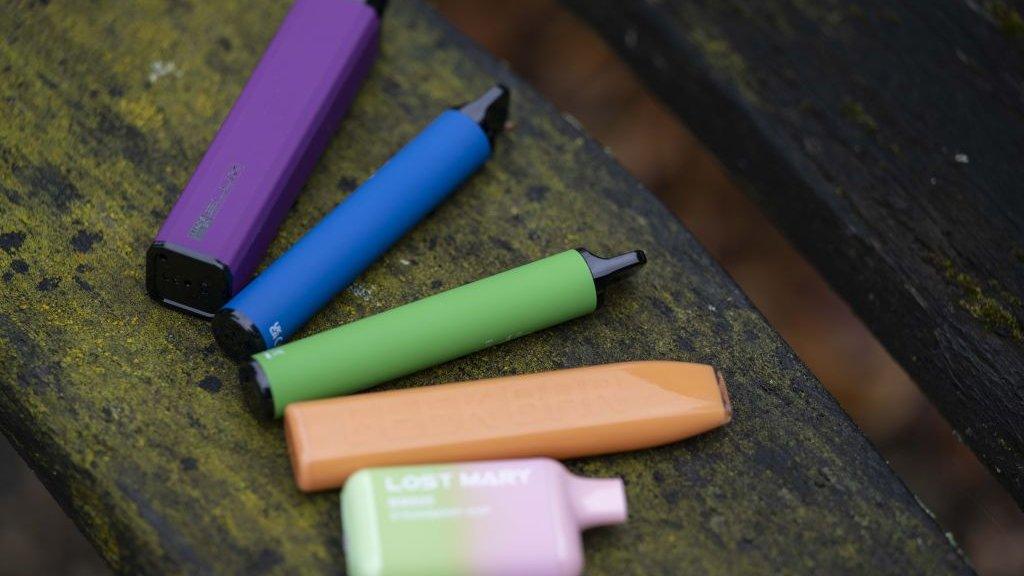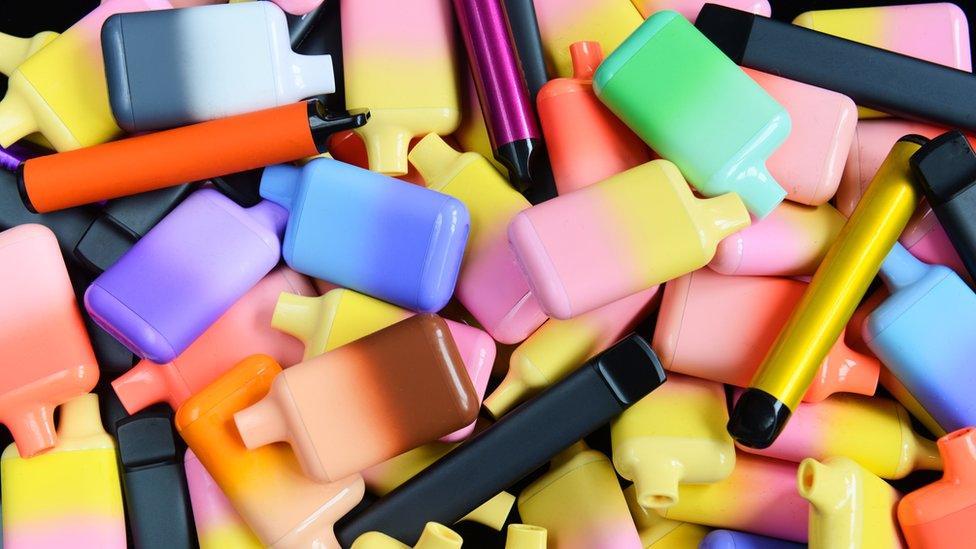'I tried vaping and it was like breathing in fire'
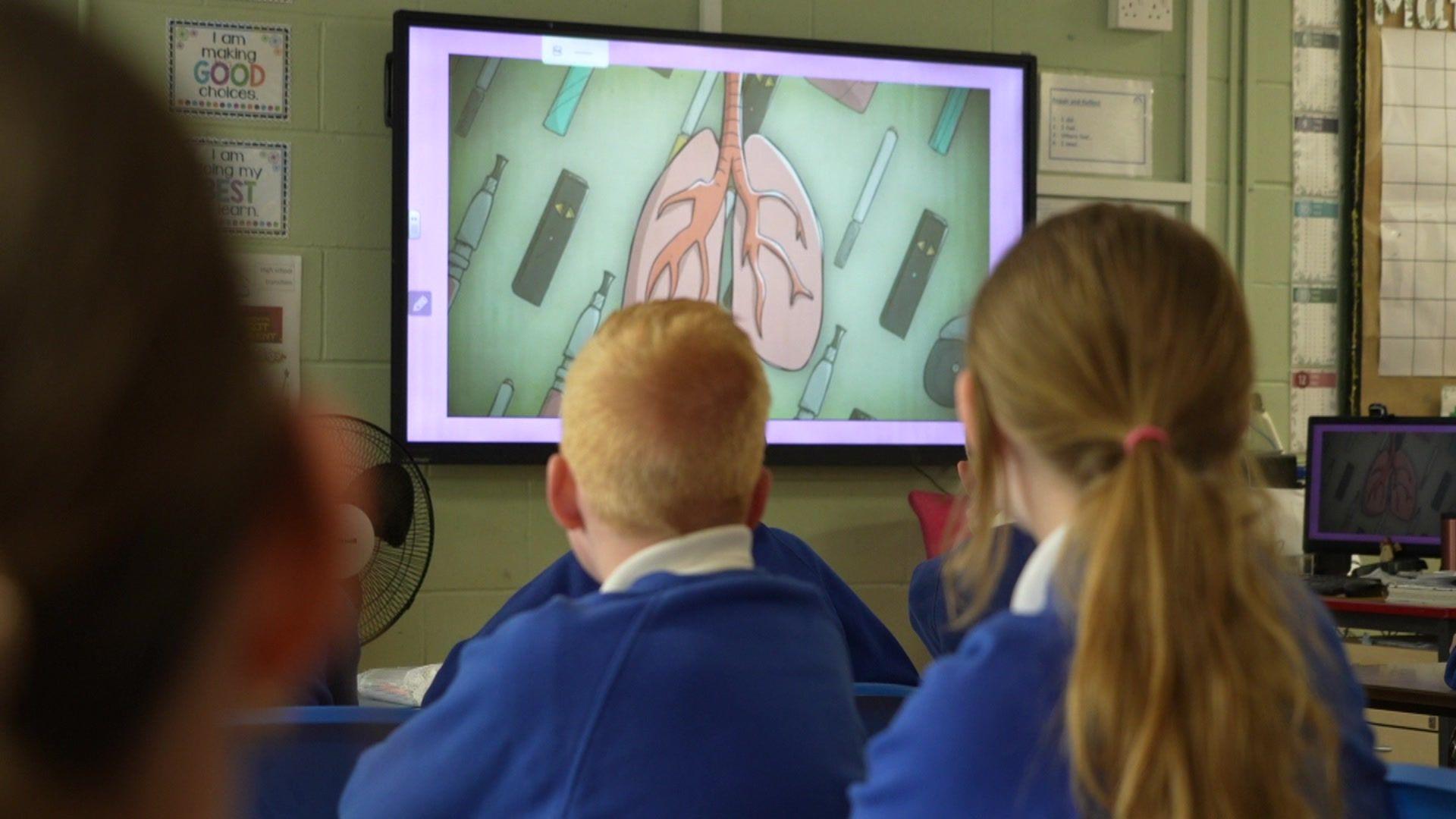
The pupils watch a video on the potential impacts of vaping on their health
- Published
Vaping is recognised as an effective way of getting adult smokers to quit tobacco, but the rise of disposable e-cigarettes has seen children picking up the habit. BBC News went to one primary school trying to fight a rise in under-11s becoming hooked.
Cookies, ice cream, blueberry, cherries and watermelon.
They sound like tasty after-school snacks, but the 10 and 11-year-old pupils in the classroom in front of me are actually listing the flavours of vapes they know.
Surrounded by vibrant wall displays and colourful folders, the youngsters are well aware of the rise in vaping.
When I ask them to raise their hand if they have been offered a try, about half say they have.
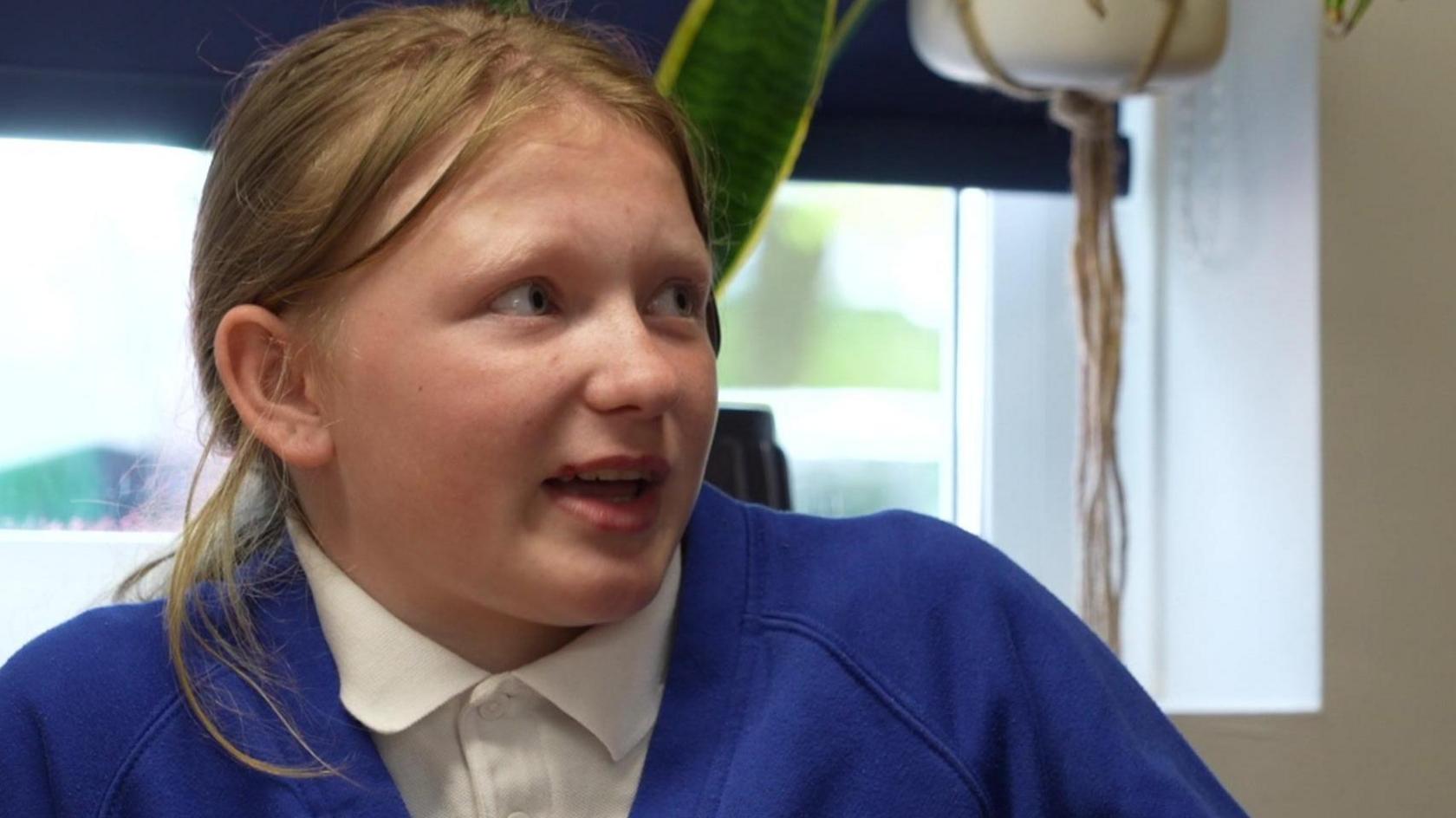
Tillie sees sweet-sounding vape flavours like cookies, ice cream and blueberry in her local shop and says "it's really bad"
One girl, smartly dressed in her royal blue school sweater, says she was offered a vape a few days ago – but turned it down.
The reason? She’d tried one a couple of years ago when she was eight and didn’t like it.
“A friend had peer-pressured me into trying it. I didn't like it at all.
"It tasted like when you are breathing in fire,” she explained.
Another girl tells me: "When I was 10, a 14-year-old boy offered me a vape for no reason.
"He just came up to me and asked me 'do you want to try this out?'
"I asked what it was and he said 'something that will make you feel good'."
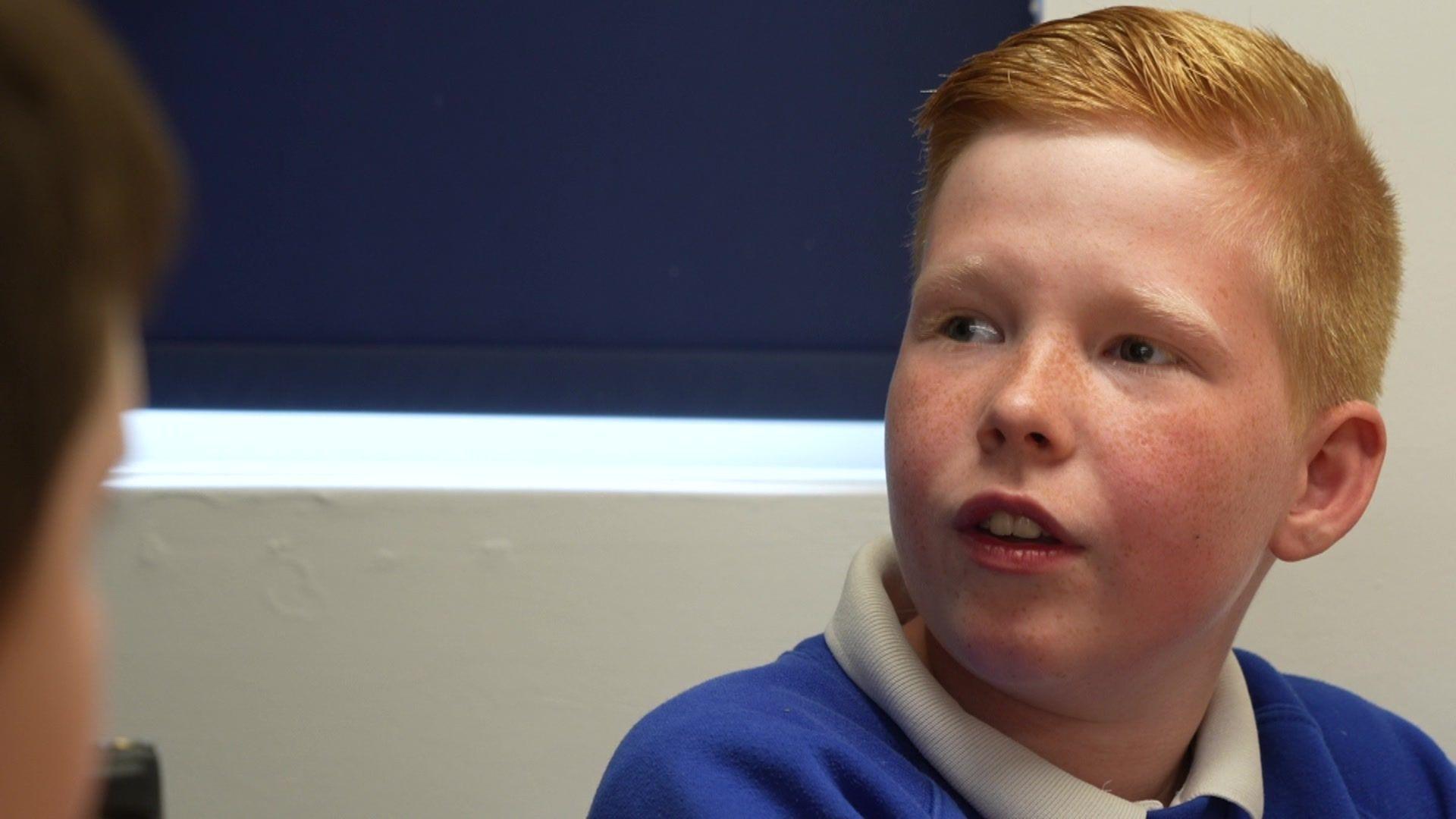
Lucas says it is "horrifying" to learn about the rising numbers of children trying vaping - and the harm it can do to brain development
Lucas, sat up straight taking in what others are saying, says he hasn't been tempted - but thought the colourful marketing and fruity flavours made other children want to try them “because they think they are more safe".
Research by the Action on Smoking and Health (ASH) charity found that one in five children aged 11 to 17 had tried vaping. They say that is an increase of 50% in two years.
Although vapes, which contain chemicals including nicotine, are believed to be less harmful than smoking, doctors say vaping may cause long-term damage to young people's lungs, hearts and brains.
Proposed new laws were announced earlier this year to ban disposable vapes entirely and to bring in a new vaping tax – but these proposals were not approved before the dissolution of Parliament.
Several of the political parties’ general election manifestos do mention curbs on vaping specifically, and campaigners hope those restrictions will pass into law.
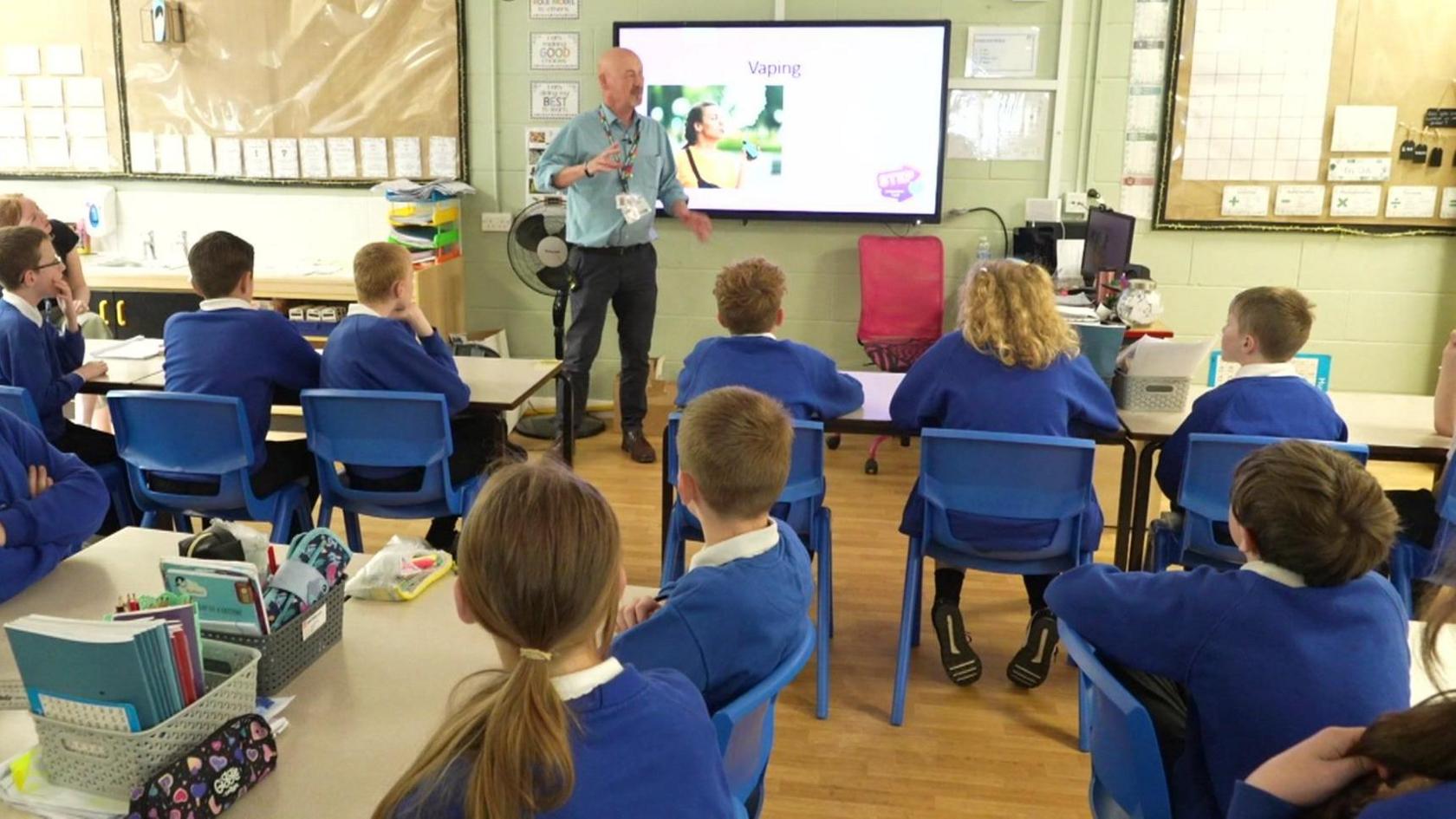
Andy Gibbs of Step 2 Young People's Health delivers a vaping deterrent workshop to children at Reevy Hill Primary School in Bradford
Eve Pinder is the teacher taking the class we are speaking to at Reevy Hill Primary School in Bradford.
She wants to see a “bigger push” in the national curriculum to try and tackle the issue of vaping earlier, describing the experiences of the children in front of her as “sad”.
“The age that they are now, they are obviously susceptible and we can't hide them from it, but if we educate them, we can help them with the choices they make,” she adds.
The school has commissioned the Step 2 charity to come into the classroom and deliver a workshop to educate the children about the dangers of vaping.
The deterrent workshops have been launched in primary schools in the city to try and stem the growing numbers of younger children taking up the habit
'Dispel some myths'
Andy Gibbs, a youth worker running the session for the health charity, says the sessions had begun as a way of "planting the seed" of awareness in younger children.
He says that even by the time children got to secondary school the use of vapes could become “normalised and accepted”.
"We focused initially on high schools but thought young people are getting into vaping very easily in years seven and eight, so we thought we'd focus on years five and six, get the information out there, dispel some myths and get young people talking about the issue.
"A lot of the older children will probably [already] be vaping and [the younger children] accept it.
“It's about resisting that peer pressure really."
The three main political parties have put smoking and vaping harm as one of their health priorities in their general election manifestos.
The Conservatives have pledged to bring forward the Tobacco and Vapes Bill in the first King’s Speech.
Labour have pledged to ban vapes from being branded and advertised to appeal to children.
The Lib Dems have also put reducing the attractiveness of vaping to children as a health policy priority.
For the girl who had tried and disliked the vape, it’s simple.
"I have learnt today that there are toxic metals in vapes that can damage your lungs,” she tells me.
She says she sees children walking to and from her school and sometimes they and older children with them have vapes.
"A bunch of little children I know are trying them and it's really bad for them.
"It makes me feel disgusted that children are liking it."
- Published18 April 2024
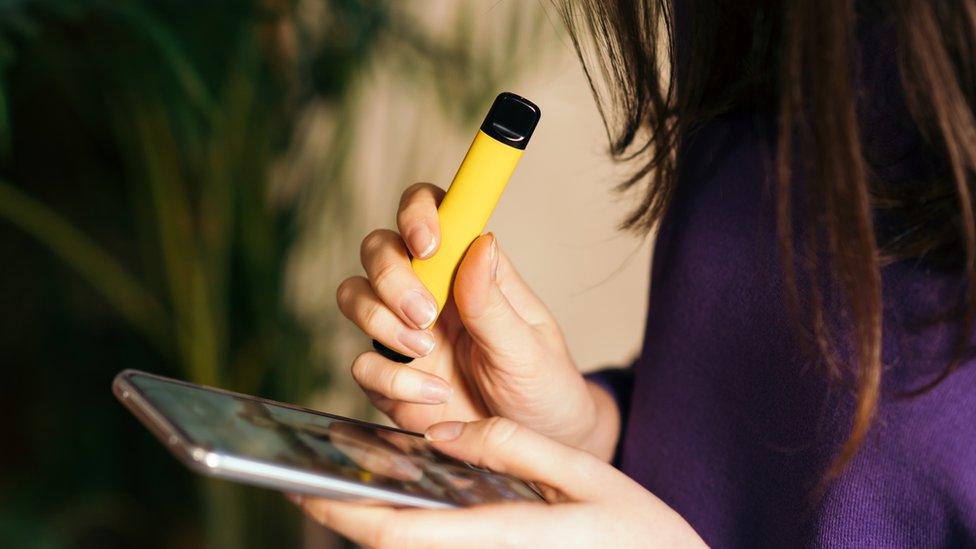
- Published29 January 2024
